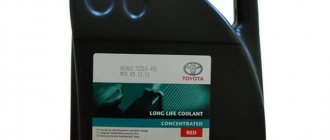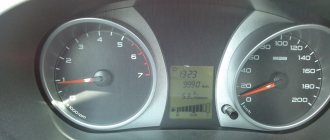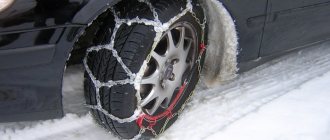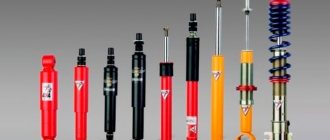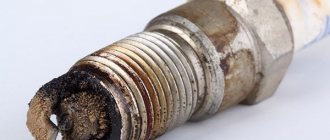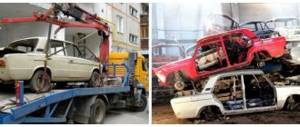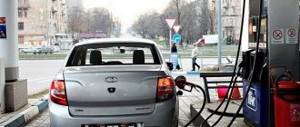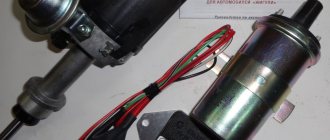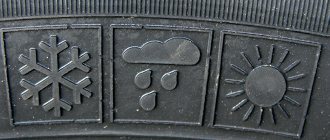Almost every owner of equipment with an internal combustion engine has his own opinion about which gasoline is better - 92 or 95. At the same time, most focus solely on the cost of fuel. For example, if 95 gasoline is more expensive than 92 gasoline, then it supposedly must be of higher quality, higher in calories, and also simply must burn better, smoke less, not run out longer, and so on.
In fact, the difference between 92 and 95 gasoline is not nearly as obvious as it seems to most. Yes - they differ in price at any gas station. But does this difference in cost indicate quality, calorie content or effectiveness? The purpose of this material is to help the user understand how these two brands of gasoline actually differ and, more importantly, which one is better to refuel.
Complex terminology in simple words
And in order to understand something, you will have to operate with certain terms that are closely related to internal combustion engines and the fuel for them. Unfortunately, in most sources of knowledge these very terms are presented too cleverly. Therefore, let's start by getting acquainted with the terms we need in a language that is simple and understandable to most.
Octane number
Octane number is a characteristic of gasoline, which means its resistance to self-ignition due to pressure. The higher this number, the more pressure the gasoline can withstand without igniting. This is important because in gasoline internal combustion engines, the fuel must be ignited solely by a spark. If the resistance to self-ignition turns out to be insufficient, then the gasoline compressed by the piston simply “will not wait” for that very spark and will begin to burn earlier than necessary.
Detonation
Detonation is nothing more than the spontaneous ignition of gasoline that “did not receive its spark.” The user can clearly perceive this effect by ear. Fuel detonation is heard as a metallic knocking or ringing sound, sometimes identified as “knuckle tapping.” In reality, no fingers are tapping there. These are sound waves that arise as a result of a sharp increase in pressure in the combustion chamber at the moment of self-ignition of gasoline with an insufficiently high octane number.
Needless to say, detonation has a detrimental effect on engine life. Little of. Self-ignition contributes to a decrease in engine efficiency and power, accelerates wear of piston group parts, and can even lead to destruction of structural integrity.
Knock resistance
The knock resistance of gasoline is a parameter that indicates its ability to “tolerate” compression in the cylinder, that is, not to ignite before it should. It just depends on the octane number. The higher it is, the higher the detonation resistance. That is, roughly speaking, 95 gasoline can be compressed more than 92 gasoline.
Compression ratio
The compression ratio is an engine characteristic that indicates the ratio of the total volume of the cylinder to the volume of the combustion chamber. If anyone doesn’t know, the total volume of the cylinder is the space that forms above the piston at the moment when it is at the so-called bottom dead center. And the volume of the combustion chamber is the space that remains above the cylinder of the total volume at the moment when the piston is at top dead center.
In simple terms, the higher the compression ratio, the more the air-fuel mixture is compressed when the piston approaches top dead center. Accordingly, the higher this characteristic is, the greater the pressure on the mixture. This means, in turn, that the higher the engine’s compression ratio, the greater the fuel’s knock resistance. That is, it must have a higher octane number.
At this stage, it is important to understand that the compression ratio is a constant value for each specific engine. That is, as the engine wears out, neither the combustion chamber nor the total volume of the cylinder changes significantly.
Compression
Compression is the pressure that is created in the combustion chamber at the moment when the piston is at top dead center. That is, it turns out that the greater the compression, the higher the pressure. This means that with increasing compression, the detonation resistance of gasoline, which is used in this case, should also increase.
Despite this, the octane number of gasoline is never tied to engine compression, as was described for the compression ratio. This happens because the manufacturer, recommending the use of this or that gasoline for a particular engine, implies that it will be operated only with acceptable compression. And after it decreases as a result of wear, repairs will be made.
Although in theory, when compression decreases, the pressure with which the air-fuel mixture is compressed in the combustion chamber also decreases. Accordingly, the requirements for detonation resistance can also be relaxed. As a result, it turns out that with a decrease in compression in an engine designed for 95 gasoline, 92 gasoline will also be able to operate without self-ignition.
How to profitably exchange a used car
To guarantee the legality of the used car exchange service and its objective cost, the purchase and sale process should be carried out at a trusted auto center. Here the client will be offered:
- Diagnostics of the old model, on the basis of which its cost will be determined;
- Selection of cars for exchange, completely new or with a clean mileage history: all cars undergo forensic examination, therefore the car dealership will never sell a car with a “dark past”;
- Legal support of the transaction: the client enters into a notarized agreement and, if necessary, can use the credit services of the car dealership’s partner bank;
- Efficiency of the service: the client does not need to look for buyers for his vehicle; he does not need to settle issues with the traffic police or the bank. The listed functions are the task of the auto center.
Read here! Dangers of driving at night
Thus, with minimal documents, it is possible to buy an improved car within one to three days. The used car exchange service makes it possible to regularly change the owner’s vehicle fleet by purchasing its best models.
Which gasoline should you fill up with - 92nd or 95th
As can be seen from the above, when choosing a brand of gasoline, you should focus not on your wallet, but on the manufacturer’s recommendations and the compression ratio in a particular engine. In accordance with the State Standard adopted in 2013, 92-octane gasoline should not detonate in engines with a compression ratio of 8 or less. As for the 95, it should be filled in equipment whose engine compression ratio is above 9.
The same pattern works in the case of other compression ratios. For example, some Mazda cars have engines with a compression ratio of 14. Accordingly, for such engines the knock resistance of a 95 engine is no longer enough. Such engines require 98, 100, and so on gasoline.
Prices
| City and price as of 10/31/2020 | AI-92 | 95 Ecto | 95 Euro | 98 Ecto | Ecto 100 | Dt |
| Moscow | 44,00 | 48,59 | 47,66 | 56,20 | 57,19 | 48,50 |
| Saint Petersburg | 44,55 | 49,05 | 47,85 | 56,09 | 57,64 | 49,50 |
| Novosibirsk | 42,40 | 45,75 | 44,85 | 51,60 | 52,60 | 50,80 |
| Ekaterinburg | 43,20 | 47,10 | 46,70 | 54,61 | 55,66 | 48,85 |
| Nizhny Novgorod | 43,83 | 48,10 | 47,90 | 53,15 | 55,18 | 47,40 |
| Kazan | 43,50 | 46,89 | 47,94 | 54,09 | 56,54 | 47,60 |
| Chelyabinsk | 41,50 | 45,20 | 44,30 | 54,86 | 57,36 | 48,35 |
| Saransk | 43,20 | 47,10 | 46,70 | 54,61 | 55,66 | 48,85 |
| Omsk | 42,55 | 45,55 | 45,10 | 53,17 | 56,72 | 49,05 |
| Samara | 43,05 | 47,75 | 46,65 | 54,13 | 56,88 | 47,25 |
| Rostov-on-Don | 45,14 | 49,64 | 48,74 | 56,16 | 58,61 | 47,75 |
| Ufa | 43,35 | 46,05 | 44,85 | 54,98 | 57,73 | 47,40 |
| Permian | 45,07 | 48,37 | 47,92 | 54,61 | 57,01 | 50,11 |
| Voronezh | 44,80 | 49,50 | 48,45 | 54,20 | 57,65 | 47,90 |
| Volgograd | 44,97 | 49,55 | 48,55 | 54,22 | 56,57 | 48,46 |
| Tula | 43,98 | 48,50 | 48,30 | 53,51 | 55,96 | 47,70 |
More information about all prices at Lukoil gas stations can be found on the page: Cost of gasoline and Diesel fuel for Today!
What happens when you mix 92 and 95 gasoline?
The first thing that may come to mind during such manipulations is some kind of averaging of the octane number. What is important for us as users is that the cost of such a mixture is also averaged, since the 92nd is always cheaper than the 95th. However, if the second opinion has a right to life, then the second opinion does not work in real life.
The problem lies in the fact that the density of 92 gasoline is slightly higher than that of 95 gasoline. Accordingly, if you fill the tank with both fuels, they will not mix at all. In fact, denser gasoline will concentrate at the bottom of the gas tank, and less dense gasoline will float up. As a result, their octane numbers won't "mix" either. This means that from 95 and 92 gasoline it will not be possible to get some kind of average 93 or 94 in this way.
As a result of this mixing, first you will drive pure 92 gasoline, and then “finish” 95. At the same time, if the compression ratio of the engine is higher than 9, then when driving on 92-octane gasoline, detonation will be observed (unless, of course, the engine is “dead” and the compression is normal). If the engine compression ratio is 8 or less, then it will feel normal on 92 gasoline, and then, when 95 gasoline starts to flow, a decrease in power and overheating may be observed.
A couple of myths about 92 and 95 gasoline
At the end of this material, it would be quite reasonable to debunk some established myths about 92nd and 95th gasoline.
Myth No. 1. The higher the octane number, the better the quality of gasoline.
This opinion was born for a completely understandable reason - 95th gasoline is more expensive than 92nd, and therefore is intuitively perceived as higher quality. However, this is not true.
This statement is a myth because the octane number of gasoline has absolutely nothing to do with its quality. When the octane number increases in production, only the octane number increases, and with it the resistance to detonation. The quality, however, remains the same. The same cannot be said about the artisanal increase in octane number using additives. Such actions not only do not improve the quality of gasoline, but, on the contrary, reduce it.
Myth No. 2. The higher the octane number, the higher the calorie content of gasoline.
What we mean here is that when burning fuel, more energy can be extracted from one liter of 95 gasoline than from the same volume of 92 gasoline. Again, this opinion is erroneous, and many people have it due to the higher cost of high-octane fuel compared to low-octane fuel.
In fact, the calorie content of gasoline does not depend in any way on the octane number. Moreover, 95 gasoline burns longer, and therefore, in engines with a relatively low compression ratio, it simply will not have time to burn completely. That is, part of the energy contained in the fuel will simply fly out literally down the drain.
Myth No. 3. On 95 gasoline the engine runs more vigorously and
In this case, the principle of self-hypnosis works. Having paid more money at the gas station, the user on a subconscious level thinks that the engine starts faster, runs smoother, and even produces more power. However, unfortunately, this only seems so. In fact, due to the fact that 95 gasoline burns slower than 92 gasoline, all of the above “improved” characteristics may, on the contrary, worsen. But even when this clearly manifests itself, the one who paid more money at the gas station simply refuses to believe what is happening.
Myth No. 4. When using 95 gasoline, you have to change spark plugs more often
In fact, the durability of spark plugs also does not depend in any way on the octane number. It's all about the quality of the fuel. So, if 95 gasoline is homemade from 92 gasoline by adding cheap additives, then it is no wonder that when it burns, the candles will quickly become covered with soot of an unnatural color for an internal combustion engine. If the gasoline is of high quality, then the service life of the spark plugs will not be reduced by its octane number.
Myth No. 5. You can travel more on a liter of 95 than on the same volume of 92
This myth was born for the same reason - 95 gasoline is more expensive than 92 gasoline, which means it is better, higher in calories and of higher quality. And if this is so, then you can drive more kilometers on it. However, this doesn't work in real life. 95 gasoline does not contain more energy than 92 gasoline, and therefore, one or the other - under the same conditions (driving style, weather) will be enough for the same number of kilometers.
